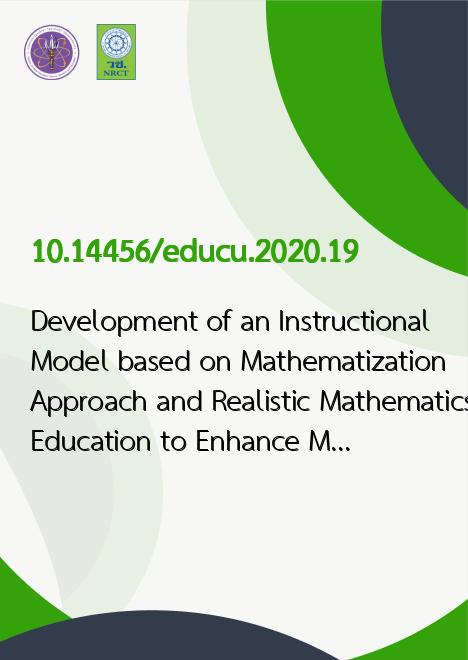
|
Development of an Instructional Model based on Mathematization Approach and Realistic Mathematics Education to Enhance Mathematical Problem Solving and Reasoning Abilities of Lower-secondary School Students |
|---|---|
| รหัสดีโอไอ | |
| Creator | Kitiroj Pantaranontaka |
| Title | Development of an Instructional Model based on Mathematization Approach and Realistic Mathematics Education to Enhance Mathematical Problem Solving and Reasoning Abilities of Lower-secondary School Students |
| Contributor | Wichai Sawekngam, Aumporn Makanong |
| Publisher | Centre for Education Innovation, Print and Online Media |
| Publication Year | 2563 |
| Journal Title | Journal of Education Studies, Chulalongkorn University |
| Journal Vol. | 48 |
| Journal No. | 3 |
| Page no. | 21-40 |
| Keyword | mathematization, realistic mathematics education, mathematic problem solving ability, mathematical reasoning |
| URL Website | https://so02.tci-thaijo.org/index.php/EDUCU |
| Website title | Journal of Education Studies, Chulalongkorn University |
| ISSN | 2651-2017 (Online) |
| Abstract | The purposes of this research were to develop and study the effectiveness of an instructional model based on mathematization approach and realistic mathematics education to enhance mathematical problem solving and reasoning abilities. The research sample included 80 eighth grade students from 2 classrooms of Saipanyarangsit School, Pathum Thani Province. They were randomly assigned into 2 groups: the experimental group using the instructional model and the control group using the conventional approach. The research instruments were the test of mathematical problem solving ability and the test of mathematical reasoning ability. The data were analyzed by mean, standard deviation, and t-test.The findings revealed that: 1) the developed instructional model consisted of 4 steps: connecting real experience to realistic mathematics, designing mathematical concepts, developing practical concepts, and reflecting to real life; 2) mathematical problem solving and reasoning abilities of the experimental group were higher than the control group at a significance level of .05; and 3) according to the qualitative data analysis, the experimental group’s behavior of problem solving and mathematical reasoning had a positive change. |